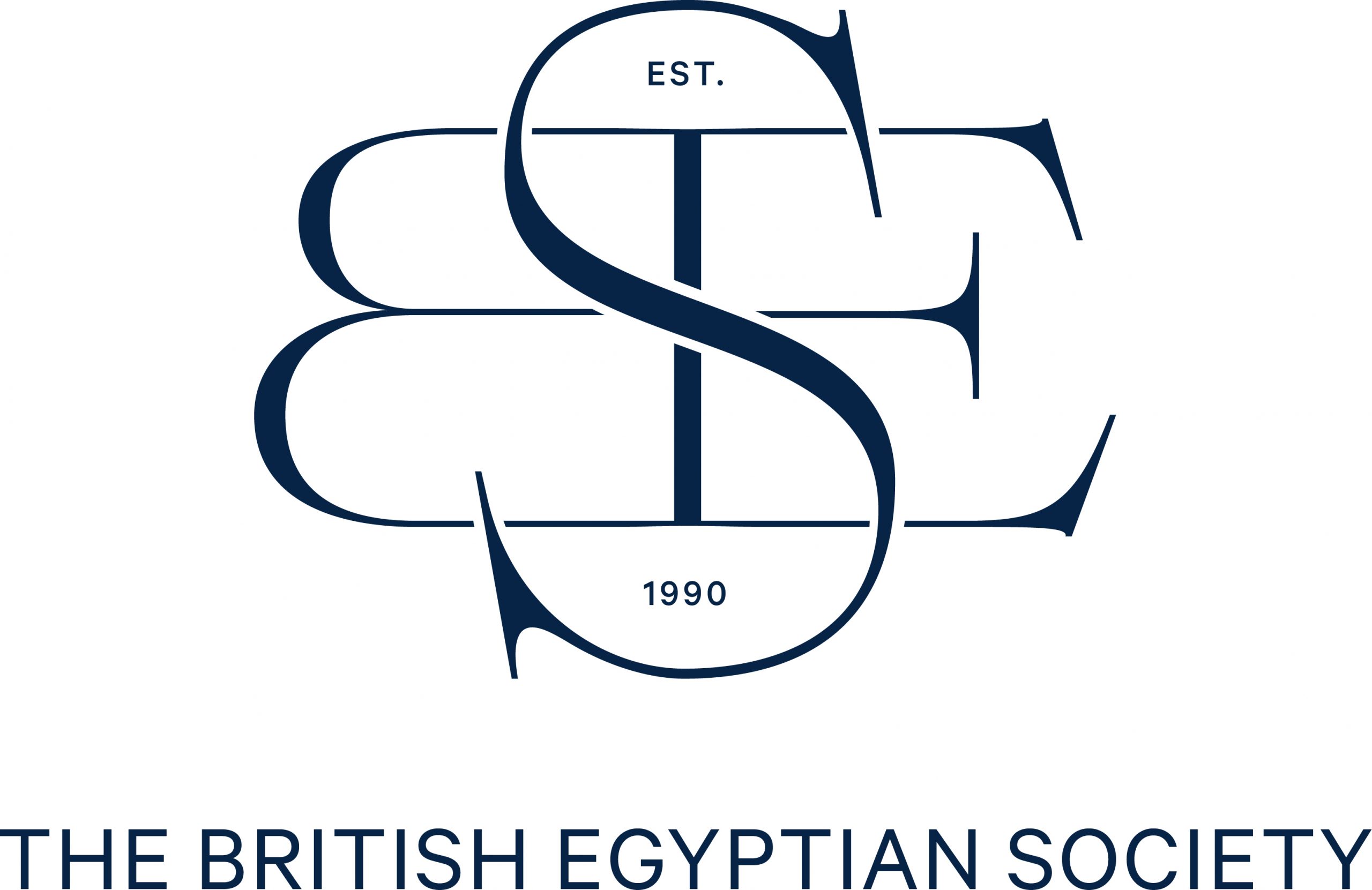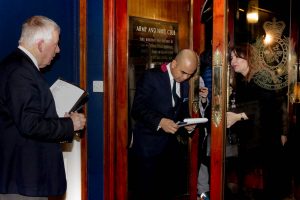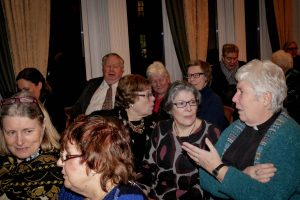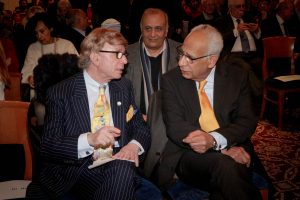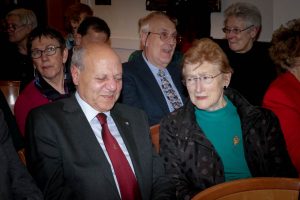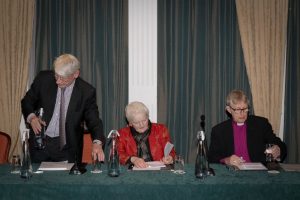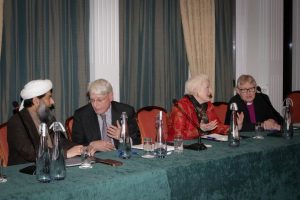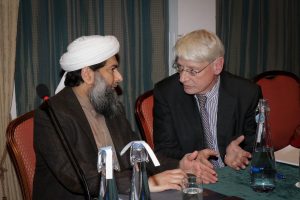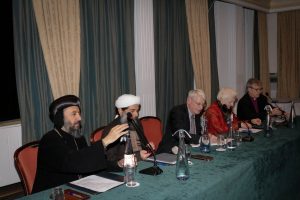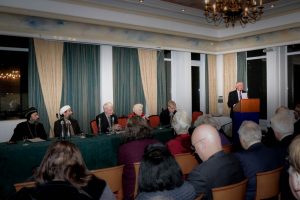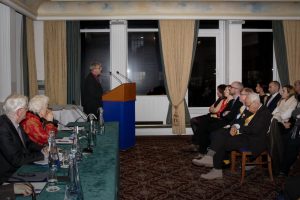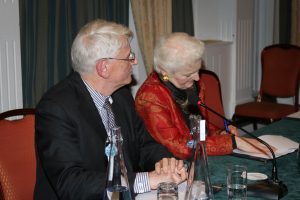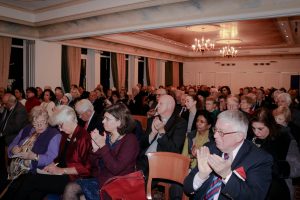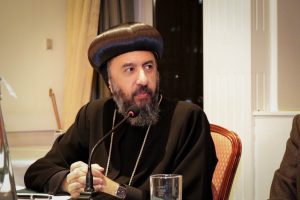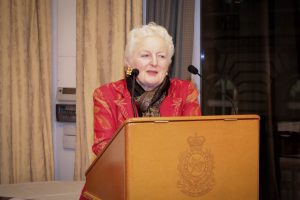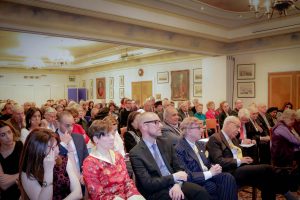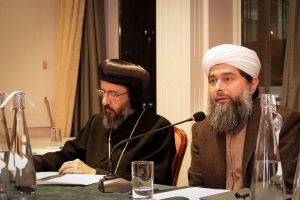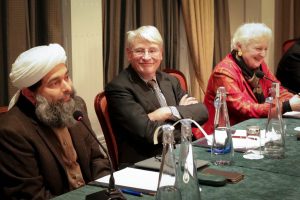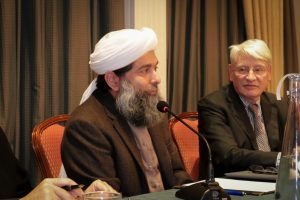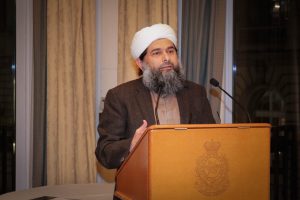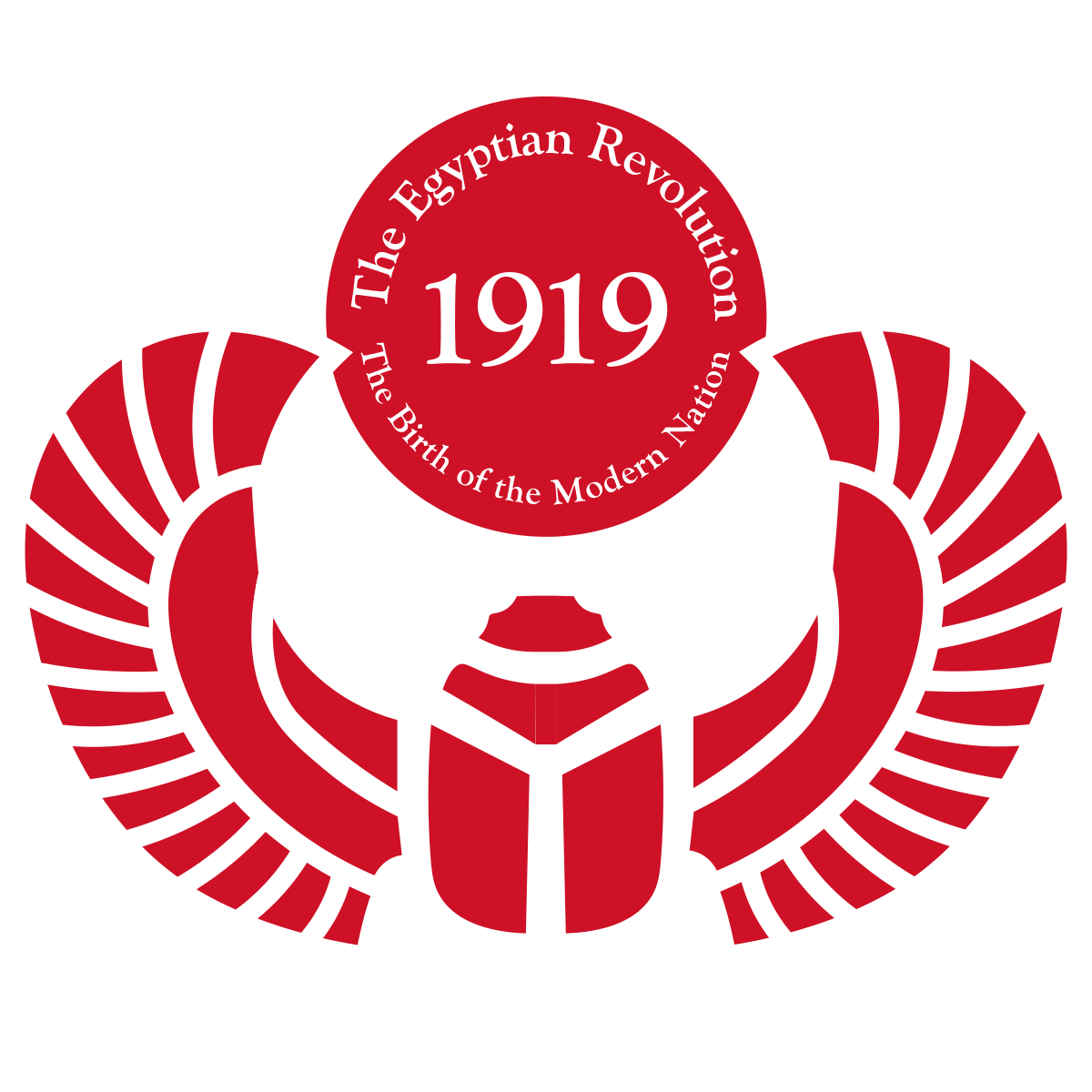Inter-Religious dialogue: Why Bother?
We are starting the New Year in a meaningful way. One cannot ignore the events in the Middle East, the way that communities which lived together peacefully for generations are disintegrating. In our own small way, we are holding a debate entitled “Inter-Religious dialogue: Why Bother?” with a quite remarkable panel:
His Grace Bishop Angaelos
His Grace Bishop Angaelos, is General Bishop of the Coptic Orthodox Church in the United Kingdom, and is widely recognised for his extensive advocacy work. As a result, he was conferred with the honour of Officer of the Most Excellent Order of the British Empire by Her Majesty The Queen, for ‘Services to International Religious Freedom’. He has also been conferred with the Lambeth Cross for Ecumenism by the Archbishop of Canterbury, and the Coventry Cross of Nails for Reconciliation. With a pastoral ministry spanning two decades, Bishop Angaelos also specialises in youth ministry and travels extensively around the world to speak at youth conferences and conventions.
The Rt. Rev. Peter Hill, Bishop of Barking
Originally from Swansea, Peter studied at Manchester and Nottingham Universities and trained for ordination at Wycliffe Hall Oxford. He taught for eight years in Greater Manchester prior to ordination and subsequently served as a curate in Nottingham, vicar of two mining parishes, Diocesan Chief Executive and latterly as Archdeacon of Nottingham, before taking up his current post as Bishop of Barking. During his last 4 years in Nottingham he was the elected Faiths’ Representative on the City Local Strategic Partnership. As a former teacher he has been Chair of the Diocesan Board of Education and served nationally on the Dearing Review Group on Church Schools while a member of the Church of England General Synod. He is currently one of the team of bishops engaged in responding to the refugee crisis. He is particularly involved with other faith leaders, through Citizens UK, as an advocate for the child refugees.
Shaikh Ibrahim Mogra
Ibrahim Mogra is an imam from Leicester and Assistant Secretary General of the Muslim Council of Britain. He was born in Malawi into a family of Gujarati Indian origin and emigrated to the UK at the age of 18 to study and settle. He was educated at Darul Uloom Bury, Holcombe, Greater Manchester; Al-Azhar University, Cairo; and the School of Oriental and African Studies, London. He is the founder and Principal of Khazinatul-`Ilm, Madaris of Arabic and Muslim Life Studies, in Leicester. In 2000, he contributed to BBC Radio 2’s Faith in The Nation examination of the afterlife amongst the main religious faiths. He has been a panelist on The Big Questions, a faith and ethics television programme broadcast live on BBC One. He believes that for British Muslims “our loyalty to Britain must be unquestionable”. He has been a representative for Jewish-Muslim relations appreciating the similarities of communities governed by a code of law and ethics (Torah and Qur’an) and religious festivals and holy days. Asked to choose a favourite film for The Clerics’ Choice in The Daily Telegraph, Mogra picked The Message, “you see through the eyes of the camera, as the Messenger would have seen it”.
Senior Rabbi, The Baroness Neuberger, DBE
Julia Neuberger has been a trailblazer in Judaism in this country ever since she became only the second woman to become a rabbi in Britain in 1977. Since 2011 she has been senior rabbi of the West London Synagogue and was one of the leading Jewish voices calling for gay marriage, since she took over at the “cathedral synagogue” of the Jewish Reform Movement in Britain, her community has started giving sanctuary to Muslim asylum seekers. She is a regular contributor to “Thought for Today” on Radio 4’s “Today Programme”. She became a life peer in 2004 as a Liberal Democrat, but is now a Cross Bencher and is respected on both sides of the House, chairing commissions and groups for Labour, Coalition and Conservative governments. Last year, she was appointed by the Care and Support Minister Norman Lamb to chair a Review of the Liverpool Care Pathway for Dying Patients, the report from which was published in July 2013.
Andrew Whitley – Chairman
Andrew Whitley has devoted most of his long professional career to understanding the modern Middle East and Asia, explaining the region to others and trying to address the causes and consequences of conflict there. From 1970 to 2010, he worked as an academic, in Tehran and New York; as a journalist, with the BBC, Financial Times and The Economist, in the Middle East, South Asia and Latin America; then as founding director of Middle East Watch (now Human Rights Watch/Middle East and North Africa); and, finally, as a senior United Nations official, serving in the Middle East, East Timor, Kosovo, Geneva, and New York. During his 16 years at the UN, he worked in the fields of trade and development, peacekeeping and peace-building, and humanitarian affairs. For the past six years (January 2011 to December 2016), Andrew was with The Elders: the London-based, non-governmental organisation founded by Nelson Mandela and currently chaired by Kofi Annan.
